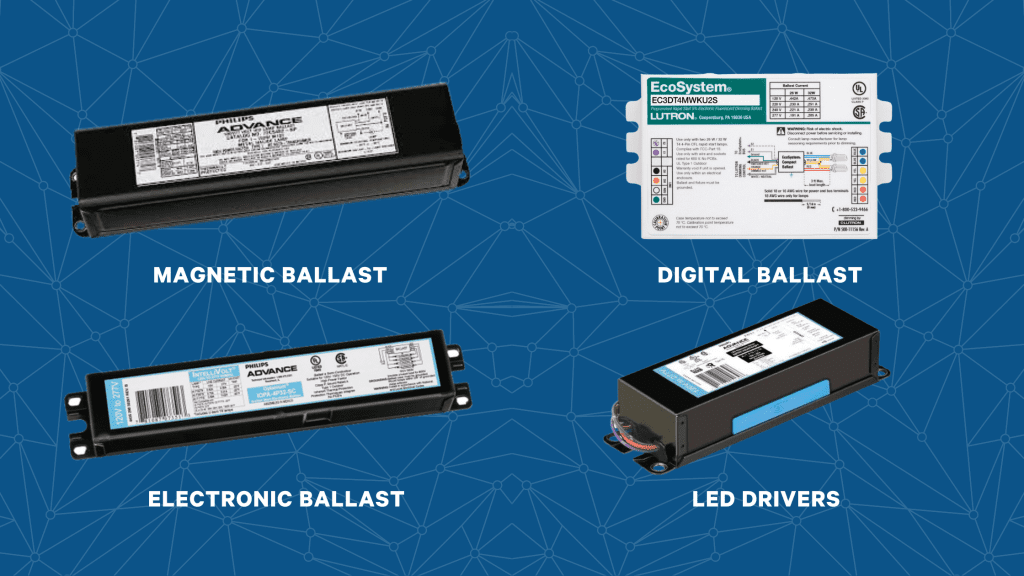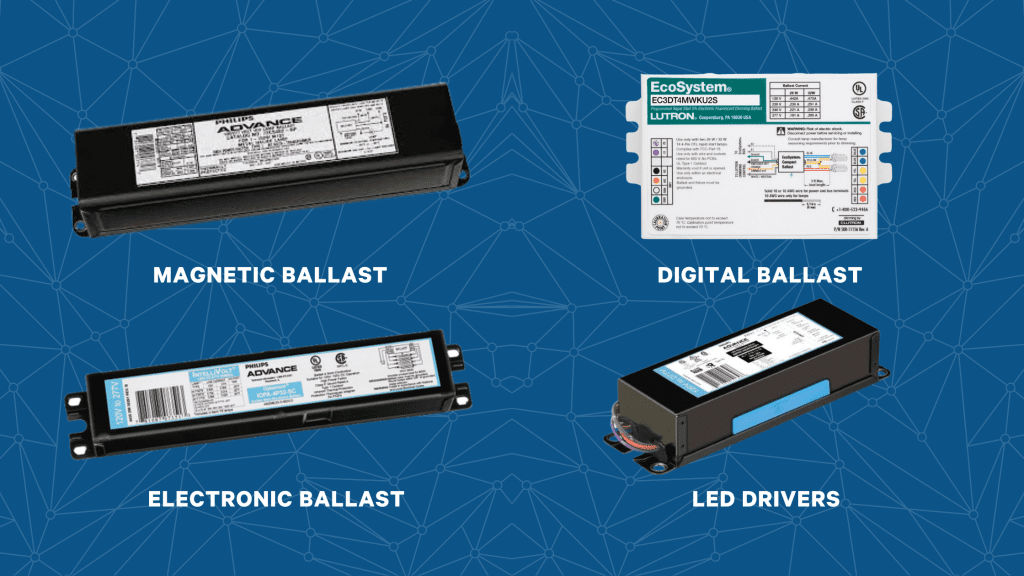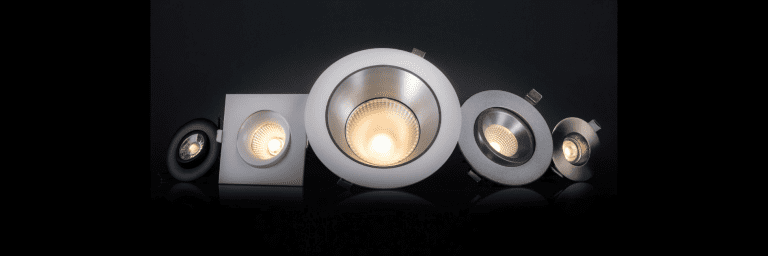

Transforming Lighting at Canadian College Surrey Campus with Mac’s II Agencies
From enhanced energy efficiency to modern design, see how this project is setting a new standard in campus lighting.
Put simply, ballasts do two main things in regulating and maintaining the performance of fluorescent and high-density discharge (HID) lamps: they start lamps and control lamp operations.
But before choosing a ballast, it’s important to know about the different types.


Next, it’s important to consider energy efficiency. Look for ballasts with the ENERGY STAR® symbol, as they meet internationally recognized standards for energy efficiency. Ballasts with this symbol consume less energy, emit less heat, and have a longer lifespan than ballasts without. You can also select ballasts that are compatible with energy-saving lamps, such as LED tubes, to reduce energy consumption and maintenance costs.
Before choosing ballasts, check your lamp types. Different ballasts are designed for different lamp types, such as T5, T8, or T12 fluorescent lamps and HID lamps. Be sure to check the manufacturer’s specifications for recommended lamp types and wattages. Using the correct ballast enhances lamp life, reduces flickering, and maintains consistent lighting levels.
Many ballasts are compatible with dimming systems. So if your residential or commercial building has advanced lighting control features, select dimming ballasts that meet these needs. Dimming helps save energy, creates ambiance, and improves occupant comfort.
Your ballast is only as good as the brand you source it from. Here at Albrite and E.B. Horsman & Son, you can trust that we only supply ballasts from outstanding manufacturers like Signify, Philips, Lutron, Leviton, and others.
Choosing from a well-known, reliable brand makes your work easier by keeping maintenance and longevity in mind. Once you pick your brand of choice, look for ballasts that offer easy installation, have a long operational life, require minimal maintenance, and offer warranty options.
Here is a guide for Philips Lamp, (LED & Traditional), Ballasts and Drivers.
Our customers often need ballasts for their specific use cases. If you’re a property manager for a residential or commercial building or a purchasing agent for a nationwide chain—like many of our customers—here are some additional factors to consider.
Choosing the right ballasts for your building depends on several factors, including the type of lighting fixtures you have, your energy-efficiency goals, and your budget.
But in general, electronic ballasts are a great choice for energy-conscious residential buildings. They provide better light quality, reduce flickering, and eliminate humming noises, keeping your residents happy.
Many of our customers are purchasing agents for commercial chains. If this sounds like you, make sure to:
Still need guidance finding the right ballast for your commercial or residential building? Get in touch with our team of lighting experts. Lamps and ballasts have been Albrite’s bread and butter for over 50 years—with brands like Lutron, Philips, Fulham, Intermatic, Crouse-Hinds, EcoSystem, Nova T.
We’re more than happy to help you find the perfect ballast for your lighting needs!


From enhanced energy efficiency to modern design, see how this project is setting a new standard in campus lighting.


LED lighting options come in a spectrum of hues known as colour temperatures. This correlates to how warm (yellowish) or cool (bluish) the light appears.


Smart lighting retrofits for multi-family buildings might seem daunting, but the investment can be all worthwhile.

Customer Service
1.888.467.7626